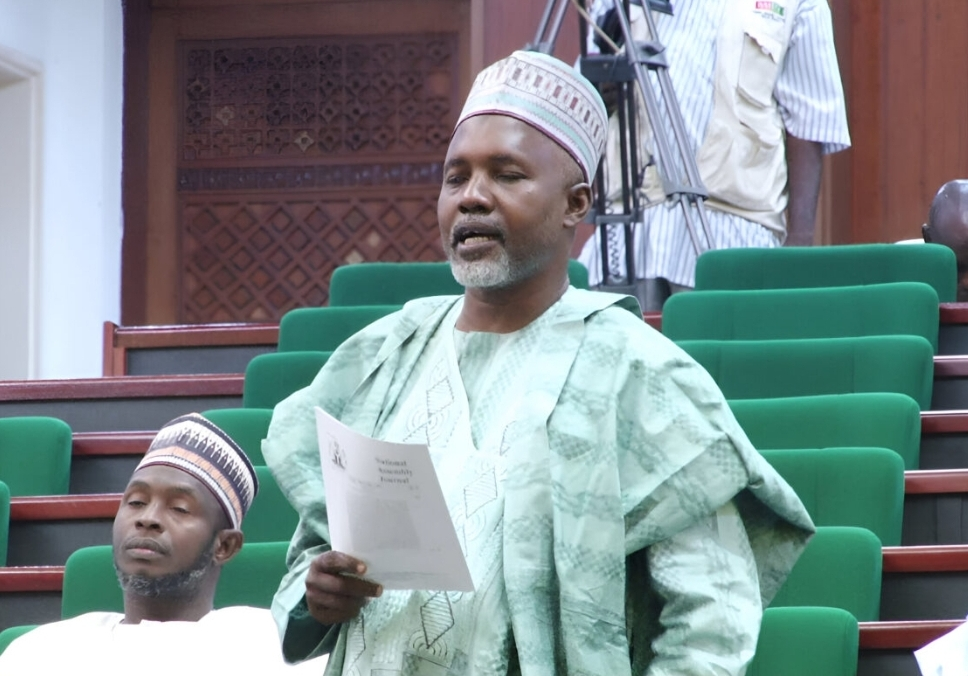
To end the discrimination against Higher National Diploma (HND) holders, the National Board for Technical Education (NBTE) has introduced a programme to convert HND certificate to bachelor’s degree through a one-year online top-up programme with foreign accredited universities. But the discriminatory stake and cost still remain very high for beneficiaries, ADELOWO ADEBUMITI reports.
Polytechnic enrollment, over the years, has been on downward spiral as admission seekers prefer university education. It is, therefore, not surprising that members of staff are also leaving polytechnics due to lack of motivation, making it difficult retaining skilled manpower.
The trend, which is largely due to the dichotomy between university and HND holders, has continued to generate controversies.
Experts agreed that as long as the situation persists, the dichotomy would continue to affect HND holders’ self-worth and confidence, thereby affecting their workplace productivity.
To restore parity, the Federal Government, through the Ministry of Interior, in 2017, mandated that entry levels for both degree and HND holders should be grade level 8, particularly in all the paramilitary services.
But this notwithstanding, HND holders cannot rise beyond level 14 or 15, without obtaining additional qualifications, such as Masters degree, while a degree holder can rise to level 17, which is equivalent to the Permanent Secretary cadre.
To address the issue, the National Assembly, in 2021, passed the “Bill for an Act to abolish and prohibit dichotomy and discrimination between degree and HND holders in the same profession for the purpose of employment, and for related matters.
However, despite repeated appeals by stakeholders, the former president failed to assent to the bill before his exit on May 29.
But the National Board for Technical Education (NBTE), on August 14, introduced an online top up programme for HND holders to elevate their qualification to degree level.
The programme, which would be done with foreign accredited universities, offers HND holders the opportunity to bypass the one-year Postgraduate Diploma (PGD) for entry into Master’s programmes, and unending prejudice of presenting first degree, even after achieving advanced doctorates.
Executive Secretary of the board, Prof. Idris Bugaje, explained that to kick-start the programme, NBTE uploaded contents of accredited HND programmes into a software, to enable it pick B.Sc. contents of corresponding universities outside Nigeria, match them and find the gaps between the two.
Bugaje said: “That’s what we call credit mapping, which will now bring out those specific courses that would require one to meet up with university degree holders.
“This is the arrangement being made and we hope the system will help in promoting it, so that HND holders are not left behind in terms of progression,” he added.
So far, The Guardian learnt that an India-based institution, Mewar International University, has been accredited for the programme. The school is also said to have a branch in Nasarawa State.
According to the board, the partner institution for the top-up scheme has agreed to split payments, by allowing students pay per semester for the programme.
For interested students, it was gathered that the application fee for the programme is N50, 000, while the school fees starts from N650, 000, depending on the course of study. Payment has also been made flexible for students as they are allowed to pay in instalments, though all payments must be made before the end of the course.
But The Guardian learnt that so far, no student has registered for the programme, while opinions differ on the credibility or otherwise of the scheme.
It is, however, curious how the board kicked off the programme with partnership of foreign universities without inclusion of any local institution.
Several universities in the country, including Kwara State University Ilorin; Bells University, Ota; Federal University, Oye Ekiti; Delta State University; Ajayi Crowther University, Oyo; Lagos State University Ojo, and Babcock University, Ilishan, run top-up programmes.
Reacting to the development, the Academic Staff Union of Polytechnics (ASUP), said the move by NBTE was borne out of frustration from the discriminatory disposition of the nation against HND holders.

ASUP President, Anderson Ezeibe, insisted that the best way out of the anomaly is to allow polytechnics explore degree-awarding status on their own strength, while retaining their niche in technical and technological manpower development by also running their traditional Ordinary National Diploma (OND) certification.
“This has been our proposal on this vexed issue as such will deepen technical education, retain qualified manpower, improve students enrolment and reduce pressure on universities. The nation would be the ultimate beneficiary of such a move in the long run.
“It is immaterial if the top up programme is run by foreign or local universities; the fact is that we need to check what the destination universities for the top up have in terms of qualified personnel and infrastructure that polytechnics in Nigeria do not have. Are we saying that if the curriculum is developed or harmonised for degree programmes, Nigerian polytechnics do not have requisite manpower and infrastructure to ensure effective delivery?
“As we speak, several Nigerian polytechnics, particularly the first and second generation ones, compare favourably with many universities both public and private, in terms of manpower depth and infrastructure. It is on this strength that even universities, over the years, have been using lecturers and infrastructure from polytechnics to award degrees in satellite campuses. What then is the difference? The world has moved on from this unnecessary gate keeping disposition, as polytechnics are still awarding degrees, even up to PhD level in several countries,” Ezeibe stated.
He wondered why polytechnics should continue to operate when it is not respected by employers of labour?
“Why should a certificate that is currently floating without identity be forced on young Nigerians just because some persons must maintain a superiority profile over others? This is improper and should be corrected.
“The top up thing is none of our business. As a matter of fact, it only underlines the stark realities of the dichotomy and its implications on polytechnics and their products.
“If the regulator of the programme is now advocating or marketing a top up programme to convert HND, it only means that there’s nothing to hold back again. The frustration has come to the fore and our supervising ministry should be held to account,” he said.
Head, Department of Mass Communication, Kwara State Polytechnic, Ilorin, Dr Abdulrasheed Saadudeen, said it is ironic that the polytechnic curriculum is more practical-inclined compared to that of university, yet HND holders are often discriminated against in terms of reward and remuneration by employers.
As a nation that is yet to attain technological breakthrough, potential innovators are being discouraged from pursuing polytechnic education on account of discrimination against HND holders.
Nurudeen Mohammad of the Department of Mass Communication, Lens Polytechnic, Offa, Kwara State, described the conversion programme as a commendable initiative that addresses the vexed issue of BSc and HND dichotomy.
On the choice of foreign universities, Mohammad said this would introduce an element of international recognition and standardisation to the initiative.
“By partnering with reputable institutions abroad, the NBTE is ensuring that the educational experience and qualifications obtained through the programme meet global standards. This not only enhances the credibility of the programme, but also exposes HND holders to different teaching methodologies, perspectives, and academic environments.”

He said: “It’s a step in the right direction towards fostering a globally competitive workforce that can contribute effectively to various industries on both local and international scales. However, this conversion should not be done only by foreign universities, concerted efforts should be made to ensure that Nigerian universities take part in the programme so as to give internal validity and recognition to HND holders.
Chukwudinma Okoji, a lecturer in the Department of Mass Communication, Federal Polytechnic, Offa, Kwara State, also faulted NBTE for the imitative, wondering why a regulatory body would consider such a programme.
He also faulted the body for engaging only foreign universities for the conversion programme.
“It is a misplaced priority to engage foreign schools to run the conversion programme, we don’t value our own products but rely on anything foreign believing nothing good can come out of Nigeria. This mentality must change, and if a government regulatory agency like NBTE is thinking along this line, then, there is a problem,” he said.
Okoji said NBTE should have pressed for the president’s assent to the HND/BSC dichotomy bill, instead of introducing the conversion programme.
“Why not push and lobby for it to be signed? What NBTE has done by floating a conversion programme is simply killing the hope of many HND holders. Do polytechnic graduates need a conversion programme to compete in the industry? The answer is no.
“Most advanced countries don’t discriminate against holders of both certificates; it is only in Nigeria we have such and that is why policy change is necessary to position polytechnic graduates well in the civil service. This should be the priority of NBTE and not floating a conversion programme,” he said.
Describing the conversion programme as counter-productive, Okoji advised NBTE to stop such plans, reminding the agency of its regulatory role on technical education.
“The world is moving away from brandishing certificates to what one can offer,” Okoji stated.






